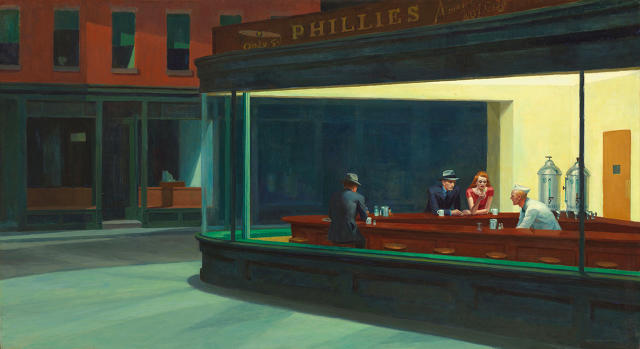A PHILOSOPHER TAKES ON MARKETING: 4 LESSONS FOR BRANDS FROM ALAIN DE BOTTON
Philosophers are as important to brands and businesses as strategists or IT experts. That’s the view of writer and philosopher Alain De Botton, who along with his colleagues at the philosophy center he founded, The School of Life, is offering advice to businesses on how to innovate and make customers and employees happier by embracing philosophical truths.

Alain De BottonPhoto: James Duncan Davidson, courtesy of TED
De Botton made the case for a more philosophical approach to business at Business Wise, a conference hosted by The School of Life in partnership with Leo Burnett London recently. Here, a distillation of his advice to businesses.
TO INNOVATE YOU NEED TO LOOK INWARD…
Focus groups and statistics won’t tell you what consumers want or need in the future, De Botton says. “In 1917, if you asked people about their reading lives, no one would have predicted that what was missing from the world was James Joyce’s Ulysses.” To innovate, you should practice the technique of introspection by trying to access your own hidden thoughts and needs. This, he says, can be the basis for future products and services. “When Edward Hopper made his paintings, what he was doing was holding on to needs, feelings, and sensations that normally get swept aside as insignificant. He was commodifying them.”Tapping into these unspoken needs led automobile manufacturers to introduce what went on to become an essential component of car design, the humble cup-holder. “For years people had cups in cars spilling everywhere, not knowing they had a need,” De Botton says. “That’s really what businesses do when they are at their most innovative. They know us slightly better than we know ourselves.”

Edward Hopper, Nighthawks (1942) Artwork: courtesy of The Art Institute of Chicago
…AND PRACTICE EMPATHY
Empathizing is another route to innovation. It’s a technique that artists use and one that De Botton believes businesses need to get much better at. “Much of our lives are spent trying to maintain the integrity of our ego and we forget that what we need to do sometimes is to try out what it might be like to be somebody else,” he says. Oral B made profitable use of empathy to come up with the design for the hugely popular Squish Grip children’s toothbrush. “Oral B tried to imagine more accurately what it was like to be a child. They realized children didn’t like brushing their teeth because the toothbrushes designed for them were the wrong shape.”

Photo: Flickr user Harold Navarro
MEANING MAKES THE WORLD GO ROUND
Business leaders take note: when it comes to keeping your workforce fulfilled, it’s not about the money. “When you scratch below the surface of a discontented workforce, the word that keeps coming up is meaning,” De Botton says. He defines meaning in this context as people feeling that they are either increasing the pleasure or decreasing the suffering of another human being through their work. His advice to businesses is to become better at conveying to people the meaning of their daily tasks. “Businesses need to give their employees a tangible sense of the difference they are making.”

Photo: Flickr user Maarten Danial
PSYCHOLOGICAL NEED IS THE MOTHER OF INVENTION
De Botton assures us that, regardless of how crammed with stuff the world might seem, there’s always room for new inventions. You can prove this to yourself by simply running through your average day and thinking of all the things that make you unhappy. “Anytime you hit on something that has made you slightly unhappy, that’s a business waiting to be born,” he says.
In the past, brands flirted with our psychological needs but didn’t deliver on them. De Botton points an accusing finger at classic advertising for Campari portraying a glamorous group of friends enjoying the drink together. “The problem is you watch that advert, you go home and you order Campari, and you’re left alone in your apartment. You haven’t got anyone to talk to.”
Now we have moved on to companies making profits directly from psychological needs, such as Facebook, a brand that delivers on friendship. “Major profits in the 21st century are going to come about from realizing that people have these psychological needs and trying to tap into them,” he says.
Check out one of De Botton’s TED talks below
[Photo: Hans Neleman, Getty Images]




